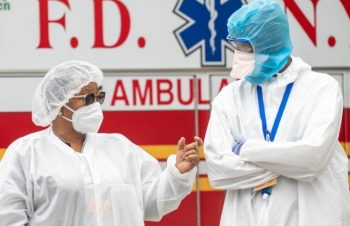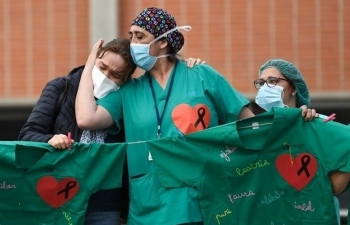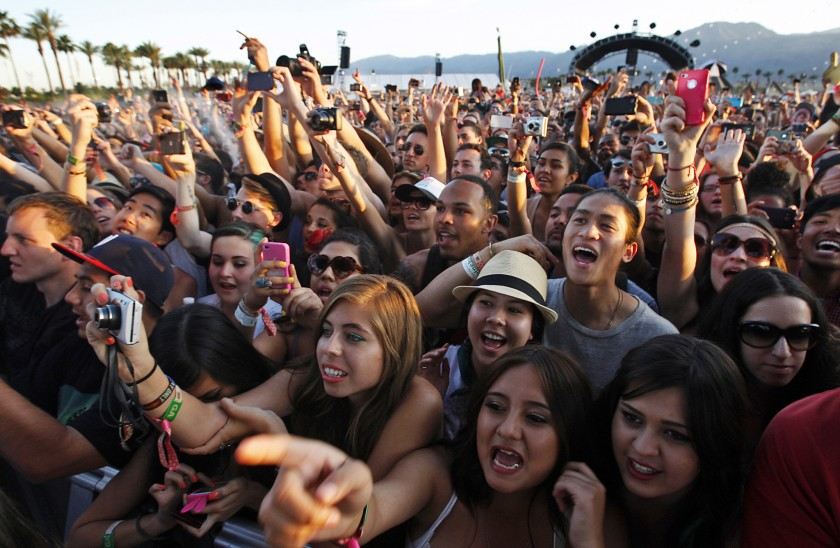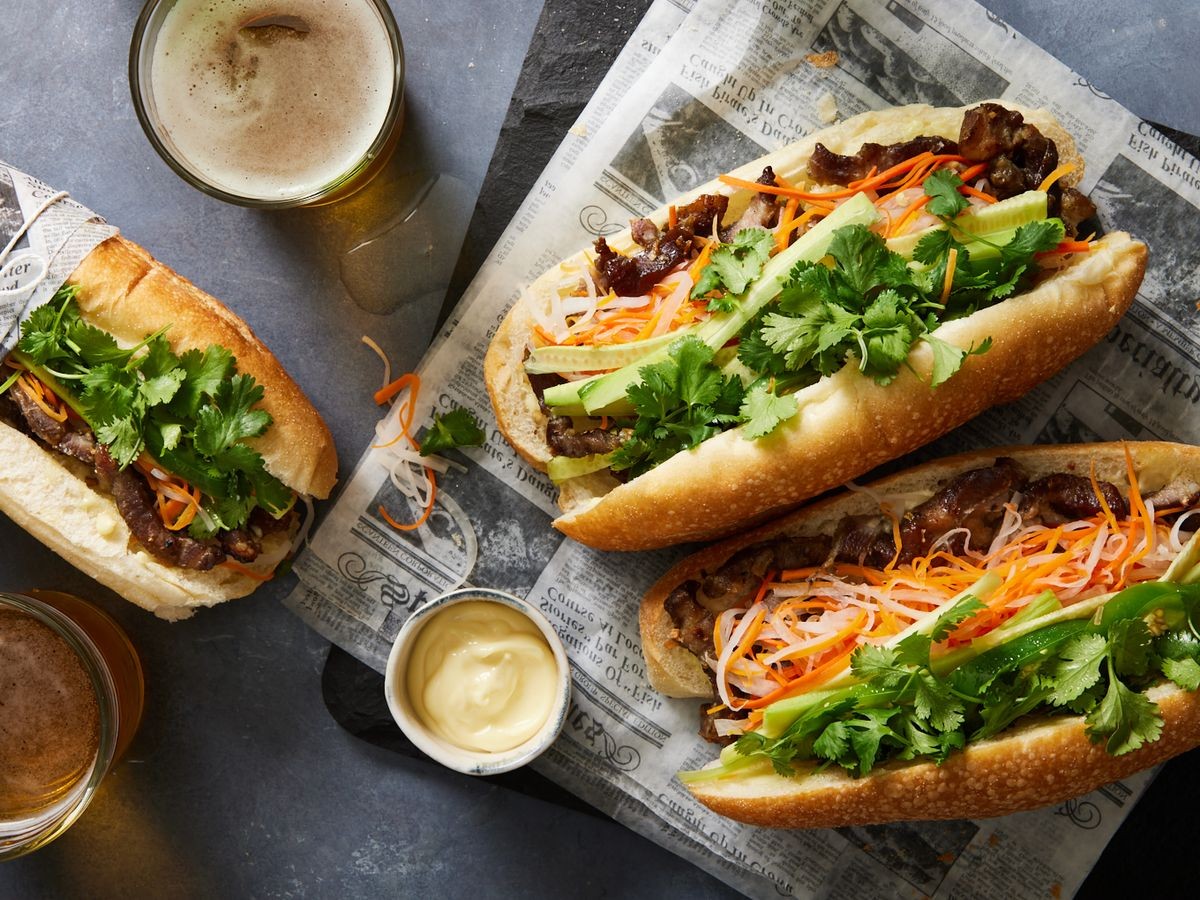The top infectious disease expert said the US probably reopens in May
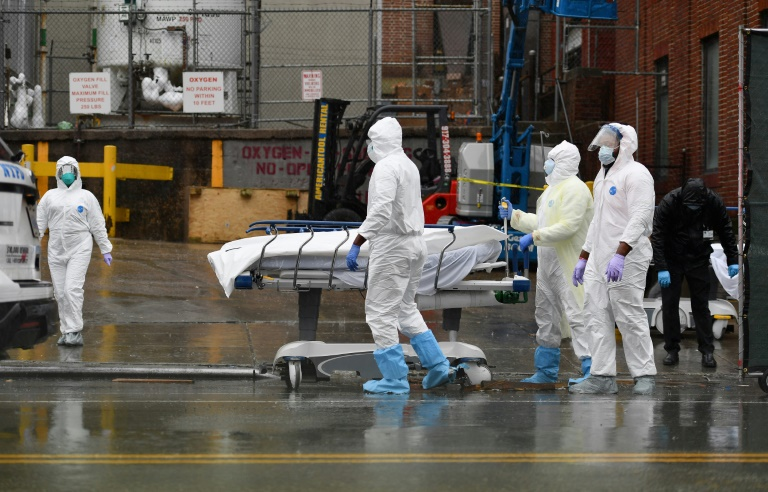 |
| Medical personnel move a deceased patient to a refrigerated truck serving as a makeshift morgues at Brooklyn Hospital Center on April 9, 2020 (Photo: AFP) |
President Donald Trump had earlier wanted the world's largest economy to be "raring to go" by Easter Sunday, but most of the country remained at a standstill and churches took celebrations online to halt the spread of the virus that has killed more than 22,000 people in the US.
Trump has cast the decision on when to ease the lockdown as the biggest of his presidency as he faces competing pressures from public health experts and businesses along with some conservative allies who want a swift return to business as usual.
Anthony Fauci, the veteran pandemic expert who has quietly sought action to stem infections, said in a televised interview that parts of the country could begin easing restrictions in May -- but was cautious.
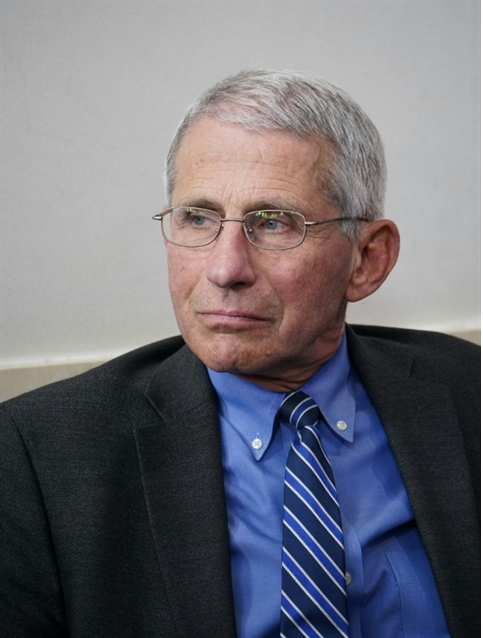 |
| Anthony Fauci, director of the National Institute of Allergy and Infectious Diseases, listens during a White House press conference on the coronavirus pandemic on April 6, 2020. — AFP Photo |
"I think it could probably start at least in some ways maybe next month," Fauci, head of the National Institute of Allergy and Infectious Diseases, told CNN.
"We are hoping by the end of the month we can look around and say, OK, is there any element here that we can safely and cautiously start pulling back on?" Fauci said.
"If so, do it. If not, then just continue to hunker down."
Fauci said that regions would be ready at different times rather than the United States turning back on like a "light switch."
Stephen Hahn, commissioner of the Food and Drug Administration, told ABC he was "hopeful" about a reopening on April 1 but added: "I think it's too early to be able to tell that."
Unlike in most Western countries, lockdown decisions are primarily up to local governments, not the president, and leaders of a number of hard-hit, densely populated states have vowed to act as long as necessary.
"We want to reopen as soon as possible," New York Governor Andrew Cuomo told reporters. "The caveat is we need to be smart in the way we reopen."
Neighboring New Jersey's governor, fellow Democrat Phil Murphy, said that an economic recovery depended on a "full health-care recovery."
If "we start to get back on our feet too soon, I fear, based on the data we're looking at, we could be throwing gasoline on the fire," Murphy told CBS.
Trump, for his part, wrote on Twitter Sunday: "We are winning, and will win, the war on the Invisible Enemy!"
'Cautiously optimistic'
The US has been recording nearly 2,000 deaths a day from the coronavirus, disproportionately older people with weakened immune systems and ethnic minorities with less access to health care and teleworking.
Worst-hit New York recorded another 758 coronavirus deaths, Cuomo said.
"You're not seeing a great decline in the numbers, but you're seeing a flattening," he said.
Fauci similarly said he was "cautiously optimistic" as admissions into hospitals and intensive care had begun to decline.
The United States, which has 4.25 per cent of the world's population, accounts for almost a fifth of the world's nearly 110,000 deaths from COVID-19 since the disease first emerged in China late last year.
The New York Times, in an extensive article published Sunday, described Trump as failing to act quickly in part due to confidence in his gut instincts and his distrust of civil servants he brands as a conspiratorial "deep state."
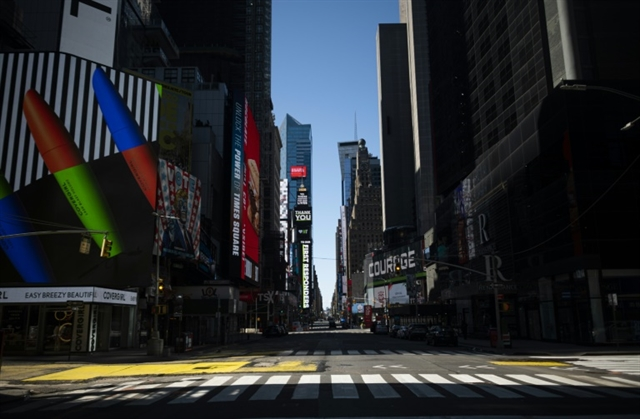 |
| Empty Time Square is pictured on April 11, 2020, in New York City. — AFP Photo |
Fauci, who has advised six successive presidents, acknowledged when asked about the article that the US could have saved lives by shutting down public spaces when the disease's seriousness became clear early in the year.
"But there was a lot of pushback about shutting things down back then," Fauci told CNN, without naming Trump.
Trump soon afterward posted an interview on in which Fauci said that the United States "early on did not get correct information."
Trump last week zeroed in on the World Health Organization to explain early difficulties, saying the UN body was overly reliant on China when illnesses first emerged in Wuhan.
Trump had been hoping to campaign on a strong economy as he seeks re-election in November.
Instead, some 17 million people have lost their jobs in a matter of weeks and his presumptive Democratic rival, Joe Biden, has been hammering him over his virus response.
NYtimes report said that "Trump reposts a message on Twitter that is critical of Dr. Fauci"
President Trump publicly signaled his frustration on Sunday with Dr. Anthony S. Fauci, the federal government’s top infectious disease expert, after the doctor said more lives could have been saved from the coronavirus if the country had been shut down earlier.
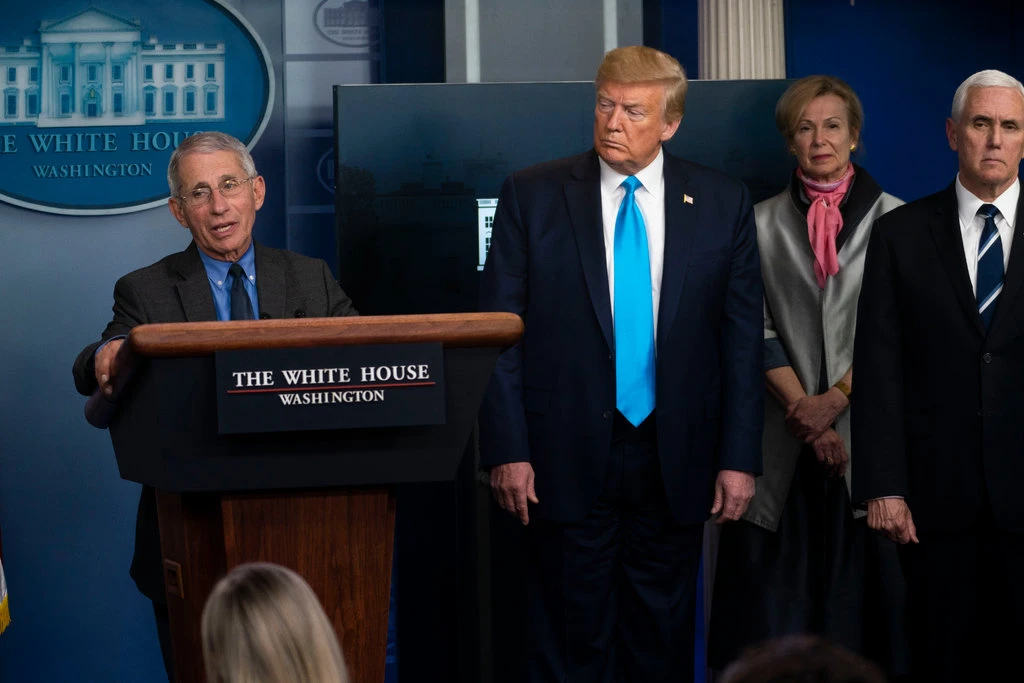 |
| Dr. Anthony Fauci with President Donald Trump, Dr. Deborah Birx, and Vice President Mike Pence during a coronavirus briefing in the White House briefing room last week.Credit...Doug Mills/The New York Times |
Mr. Trump reposted a Twitter message that said “Time to #FireFauci” as he rejected criticism of his slow initial response to the pandemic that has now killed more than 22,000 people in the United States. The president privately has been irritated at times with Dr. Fauci, but the Twitter message was the most explicit he has been in letting that show publicly.
 | Tiger detected positive for coronavirus in the US, raising queries about transmission in animals A tiger at the Bronx Zoo has tested positive for the new coronavirus, in what is believed to be the first known infection in an ... |
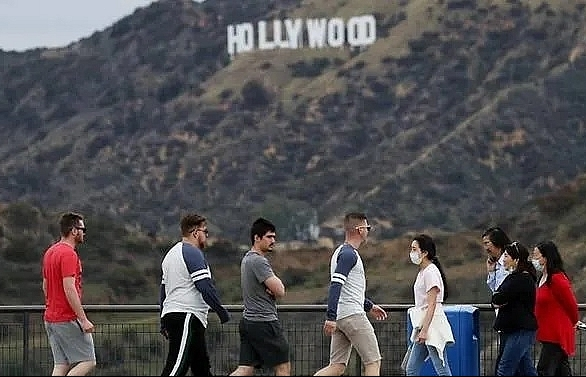 | Coronavirus news worldwide: US tops highest infection cases, Europe struggling to slow the spread The world has recorded more than one million Covid-19 infection cases and the virus has spread to 181 countries on April 5. So far, as many ... |
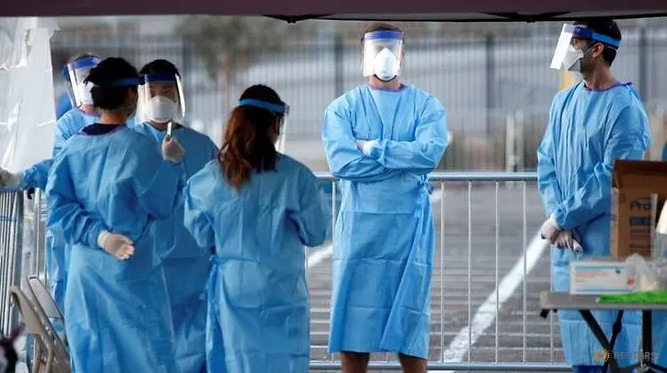 | Restrictions are slowing coronavirus infections in the US: Data The new data offers evidence, in real time, that tight social-distancing restrictions may be working, potentially reducing hospital overcrowding and lowering death rates in the ... |
Recommended
 World
World
Pakistan NCRC report explores emerging child rights issues
 World
World
"India has right to defend herself against terror," says German Foreign Minister, endorses Op Sindoor
 World
World
‘We stand with India’: Japan, UAE back New Delhi over its global outreach against terror
 World
World
'Action Was Entirely Justifiable': Former US NSA John Bolton Backs India's Right After Pahalgam Attack
 World
World
US, China Conclude Trade Talks with Positive Outcome
 World
World
Nifty, Sensex jumped more than 2% in opening as India-Pakistan tensions ease
 World
World
Easing of US-China Tariffs: Markets React Positively, Experts Remain Cautious
 World
World

